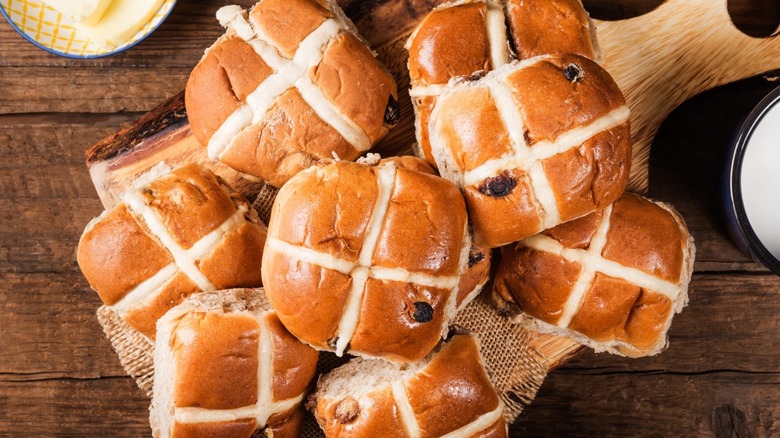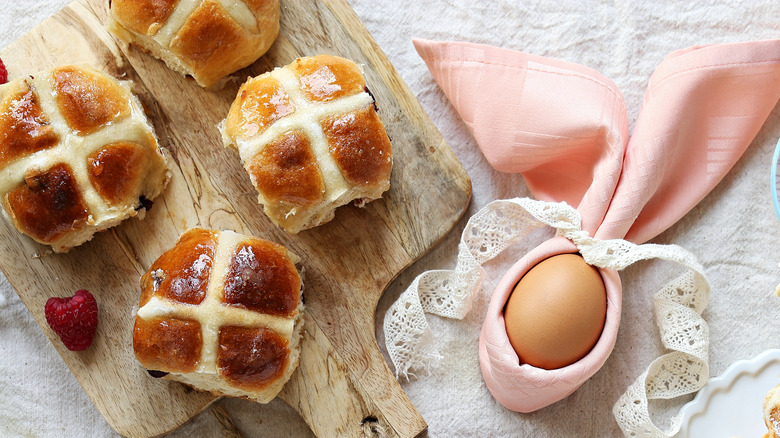Why We Eat Hot Cross Buns On Easter
Easter could seem like an unusual holiday to non-Christians. That's because for those who are secular at heart, it is a time when a large rabbit enters homes to bring children treats, followed by them settling in to gnaw on the body parts of a chocolate bunny.
To religious observers, however, the holiday celebrates the most miraculous event in Christianity — the Resurrection of Jesus. Easter bunnies, chocolate eggs, and Peeps seem to have little to do with the meaning behind what many see as a monumental occasion. One Easter food, however, is steeped in the religious significance behind what many refer to as Christianity's most important holiday (via the BBC). That is the hot cross bun.
There's a decent chance that you've enjoyed one of these fluffy lumps of fresh-baked goodness. You may even have opted for the bun that looked like it had the most raisins. What you may not have known is that this seemingly simple pastry is chock full of religious symbolism, explaining its abundant presence during the Easter season. This is the story of why Christians adopted the hot cross bun.
Every aspect of hot cross buns is steeped in symbolism
While it is widely believed that the hot cross bun was originally a cake that pagans offered to the goddess Eostre — who gave her name to Easter, according to Gourmet Traveller — they were actually adopted by Christians as a symbol of Jesus Christ's crucifixion and resurrection (via NPR). For the pagans, the cross stood for the seasons and moon phases; for Christians it became synonymous with the instrument of their savior's sacrifice.
Even the spices play a role other than that of mere flavoring. According to Better Homes & Gardens, they represent those used to embalm the body of Jesus. Some folklore even says that if you hang a hot cross bun from your rafters on Good Friday, it will stay fresh for a whole year and protect your home from evil (via Smithsonian Magazine).
These claims not only echo the belief that Jesus' body rose again — like the rising of the buns — but that they offer a defense against unknown enemies in the same way Jesus watches over his followers. Plus, according to "Christianity" by Ina Turner and Ina Taylor, the sweet raisins and dried fruit in the buns represent that Christians were no longer required to eat plain foods after Jesus' coming lifted the strict dietary limitations in the Old Testament.
While this pastry has a special place in Christians' hearts, you don't have to be religious to appreciate its melt-in-your mouth goodness.

